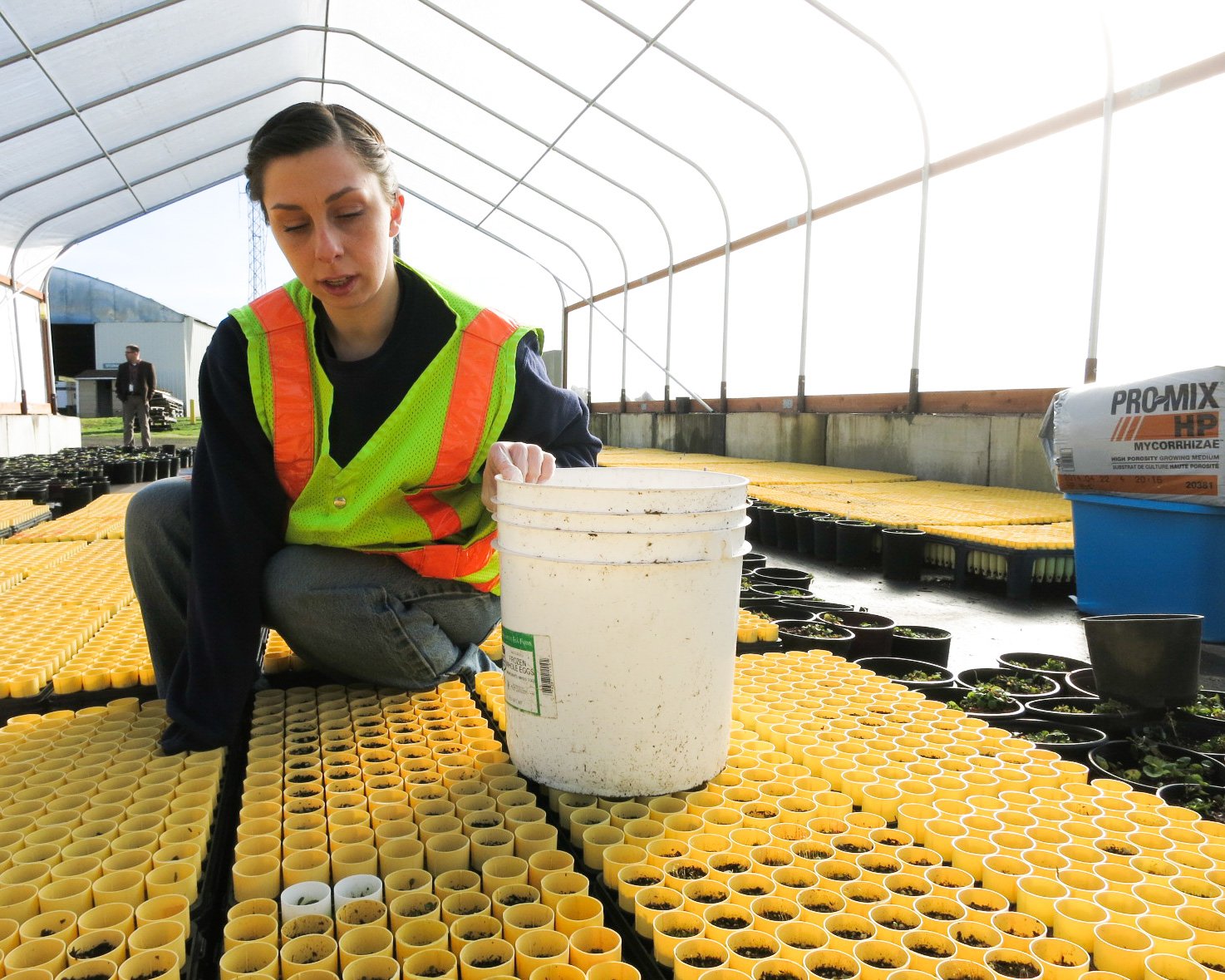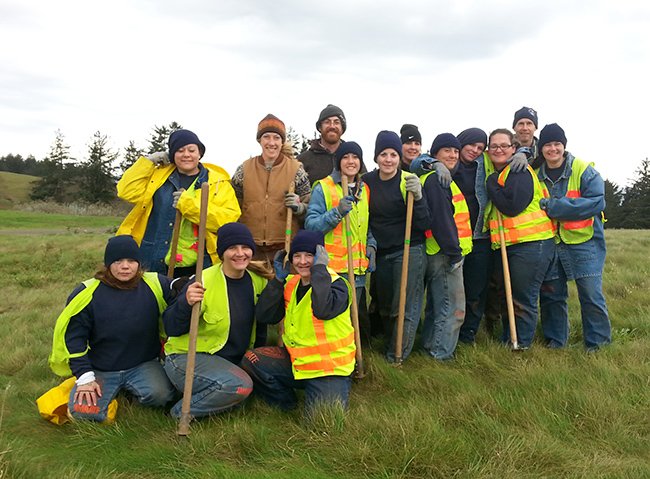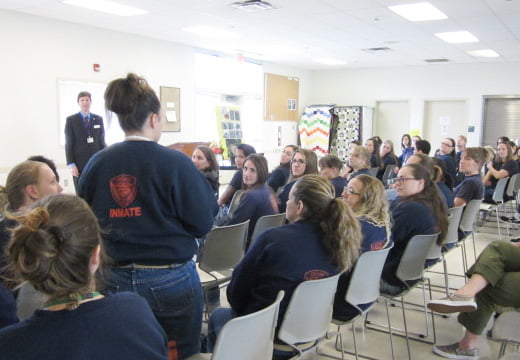
Inmates honored for conservation actions
Inmates who dedicated over 100 hours managing a nursery that produces plants for habitat conservation in Oregon, such as early blue violet plants for feeding and restoring habitat for the Oregon silverspot butterfly, received Certificates of Achievement on March 18th, 2016. IAE's Executive Director, Tom Kaye, spent the morning honoring a select group of women inmates at Coffee Creek Correctional Facility in Wilsonville , OR. In the process of caring for these plants, the women received vocational training in horticulture and conservation biology, built teamwork skills, and developed self confidence and leadership abilities.

"Seeing the combined impact of this project on habitat restoration outcomes as well as the well-being of this community of adults in custody has touched me in ways I didn't anticipate when we started," said Kaye. "I'm grateful for the effort that these women have made, and the positive impact they have had."
One group of women were recognized for planting native wildflowers for habitat conservation, including thousands of violas at Nestucca Bay National Wildlife Refuge on the Oregon coast.

The viola plants will provide food for Oregon silverspot larva once butterflies reared in captivity at the Oregon Zoo are released there. Some violets grown at the prison conservation nursery were cultivated specifically to provide food for silverspot caterpillars at the Oregon Zoo, and inmates harvested leaves during a 12-week period for regular delivery to the zoo facility. Representatives from the Oregon Zoo attended the ceremony and provided displays on butterfly rearing and conservation.So far the conservation nursery has grown over 100,000 violets and several thousand other plants that benefit the Oregon silverspot. In addition, the nursery has produced thousands of Kincaid's lupines, a threatened plant that itself is the primary food source for an endangered butterfly, the Fender's blue, and inmates from Coffee Creek have helped plant them at Baskett Slough National Wildlife Refuge west of Salem, Oregon.
During the ceremony, many of the women shared their favorite moments of harvesting viola leaves and coordinating their gardening efforts. Some of the women shared that they plan on pursuing careers in horticulture or botany when they are released.

Crystal Magama has served 16 years at CCCF and has less than a year remaining on her sentence. She has been involved in the project since its start and has been a leader in the coordination and success of the violet production. She is excited to work and volunteer for non-profits similar to IAE or the Oregon Zoo and hopes to continue to help care for native and endangered species.
Oregon Department of Corrections sustainability coordinator Chad Naugle believes this program is a “win-win,” situation for inmates, the community and the environment. “There is huge interest on the inside” by inmates hoping to get these work opportunities while they are incarcerated.
Restoration
Research
Education
Contact
Main Office:
4950 SW Hout Street
Corvallis, OR 97333-9598
541-753-3099
info@appliedeco.org
Southwest Office:
1202 Parkway Dr. Suite B
Santa Fe, NM 87507
(505) 490-4910
swprogram@appliedeco.org
© 2025 Institute for Applied Ecology | Privacy Policy
